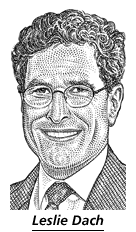
This morning’s A1 piece in The Journal outlining the Edelman-fueled PR campaign for the agency’s beleaguered Wal-Mart client will probably provide further fodder for the uninformed to accuse the world’s largest retailer of having more concern for its image than its HR policies.
I’m not so sure. My take-away, as an armchair observer who spent some time at that agency, is that former Edelman operative Leslie Dach would not have accepted the top in-house PR slot (and the chance to spend time in Bentonville) if he hadn’t truly believed that Lee Scott and company were genuinely committed to taking tangible actions to address the relentless criticism of the company’s practices and policies.
“‘I’m convinced Wal-Mart is changing and the change is real,’ Mr. Dach wrote in an email to friends announcing the move.”
Of course, there was this inducement:
“In hiring Mr. Dach, Wal-Mart granted him stock then valued at $3 million and nearly 169,000 options.”
That, on top of his likeness appearing on the front page (sub required) of the nation’s leading business journal, and in a sidebar Q&A. (When was the last time we saw a PR professional so thusly anointed?)
The bigger question, I suppose, revolves around whether today’s prominent exposure better serves the client or the agency (as an extension thereof). I will guess that both parties were pleased (if not relieved) since transparency just feels good and right. (After all, this is the premise on which this blog was built.)
But the question remains: is Wal-Mart simply combating the critics in the court of public opinion, or tackling the root cause of the criticism in the C-Suite where real policy change takes place, as Mr. Dach would want the naysayers to believe? In reading the coverage today, I suspect a good dose of both. From Mr. Dach:
“It is really all about impressions. In these political campaigns, you try to mold every day, you mold every event. In the end, the American people form an impression about a candidate, and vote on that. I think they do the same thing if it’s about a corporation, an individual or a politician.”
“The way people change their opinions is when they see your behavior. It’s not about the press release; it’s about your behavior. That’s one of the things that’s very relevant here to Wal-Mart. People look at how the company behaves and form their opinions that way.”
PR Wal-Mart Wall Street Journal Edelman Leslie Dach public relations